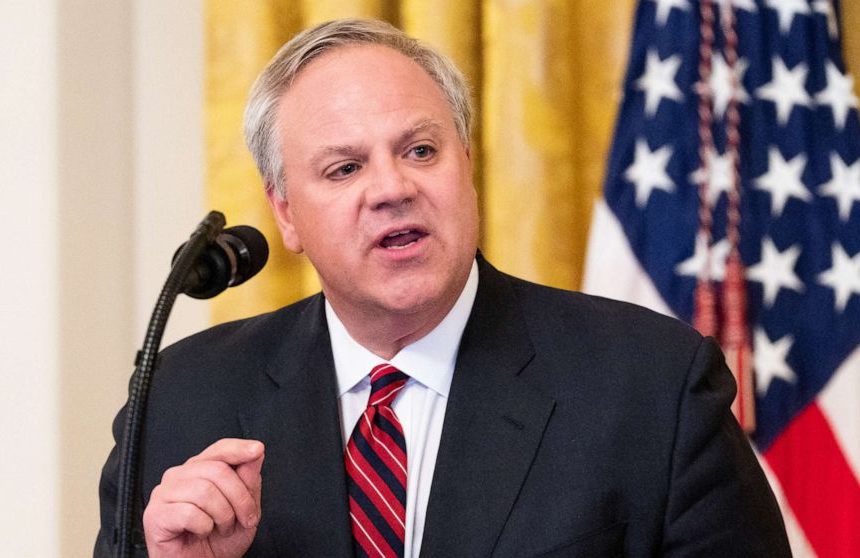Yesterday, Nick Loris, Vice President of Public Policy at C3 Solutions, spoke with former secretary of the Department of Interior, David Bernhardt on, C3’s Right Voices series and discussed federal lands, energy production, and environmental regulations.
During Bernhardt’s time in charge of the Interior Department, the Great American Outdoors Act, one of the most significant public lands bills in recent history, was passed. The Act provided permanent funding to the Land and Water Conservation Fund and addressed maintenance backlogs in our National Parks. Overall, the legislation gave much-needed aid for conservation activities across the country.
>>>> Subscribe to “The Right Voices” podcast on iTunes!
Earlier this spring, the Biden Administration released its conservation vision called 30 by 30, with the goal of conserving 30 percent of America’s land and water by 2030.
The goal has received some negative attention, as some see it as a land grab by the federal government. While Bernhardt sees 30 by 30’s guiding principles as an excellent place to start, he remains skeptical of what policies will ultimately drive the initiative.
“What really matters is: what are the details of those policies and plans? The 30 by 30 idea begins with a definition of what’s protected, the U.S. geological survey said is about 12% of federal lands. If that’s the case, then there’re going to be some challenges to 30 by 30… What’s troubling here is, on the one hand, you have an undefined document, and on the other, you have some real activists taking leadership roles within the Department of Interior….”
Bernhardt continued by saying that it is not what the document says that is necessarily important, but the steps that get us there that will matter:
“Is it something that ranchers, and county commissioners, and governors can look at and say, ‘oh, this is eminently workable,’ or is it something much different…We still have a lot to see before we can tell if the policy is one that you can embrace or push back against.”
Secretary Bernhardt also discussed the implications of the Biden administration’s freeze of new oil and gas leases on public lands. He warned that given the amount of land that the federal government is responsible for, federal agencies should be careful not to destroy activities on federal lands that “create the hopes and dreams of entire communities.”
Bernhardt who understands the relationship between rural communities and the federal government better than most, related this understanding to his upbringing in Rifle, Colorado, where his community relied on severance taxes from natural resource development on federal lands to pay for its hospital, schools, and roads.
While suspending federal oil and gas leasing, the Biden administration has looked to grow America’s renewable energy fleet on public lands. From Secretary Bernhardt’s perspective, this goal will be undermined by the administration’s refusal to update the permitting and review process under the National Environmental Policy Act (NEPA).
Under NEPA, for any federal infrastructure or energy project to be started, the federal government must first complete an environmental review to ensure that the project will not negatively impact the environment. While well-intentioned, NEPA has become an arduous process, slowing down key energy and conservation projects and ultimately hurting the environment more than it helps.
As Secretary of Interior, Bernhardt looked to streamline NEPA’s regulatory inefficiencies by shortening environmental impact statement reports to prevent projects from staying in limbo. The rest of the Trump administration noticed how effective these changes were and followed suit, eventually publishing a 2020 rule across federal agencies that shortened the environmental review process from 4.7 years to no more than two.
While some progressive activists have come out against the ruling, streamlining regulations ultimately benefits the environment by allowing for the completion of more environmentally sensitive projects.
As Secretary Bernhardt puts it, “We can change the process without changing the protections.”
Under Secretary Bernhardt’s leadership, the Department of Interior protected America’s lands while streamlining regulations and giving more power to local leaders. As the conservative environmental movement grows, we will need experts like David Bernhardt to lead with a principled and pragmatic vision.
Watch the full interview here.
The views and opinions expressed are those of the author’s and do not necessarily reflect the official policy or position of C3.
